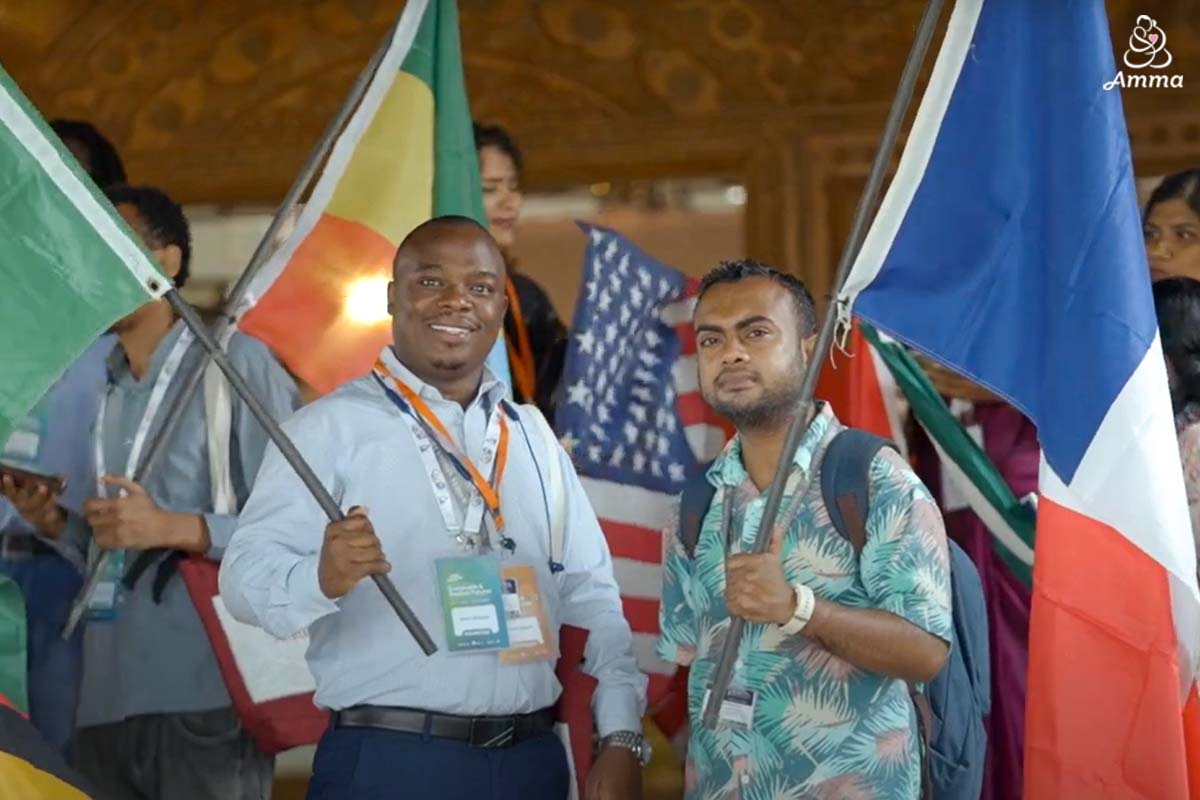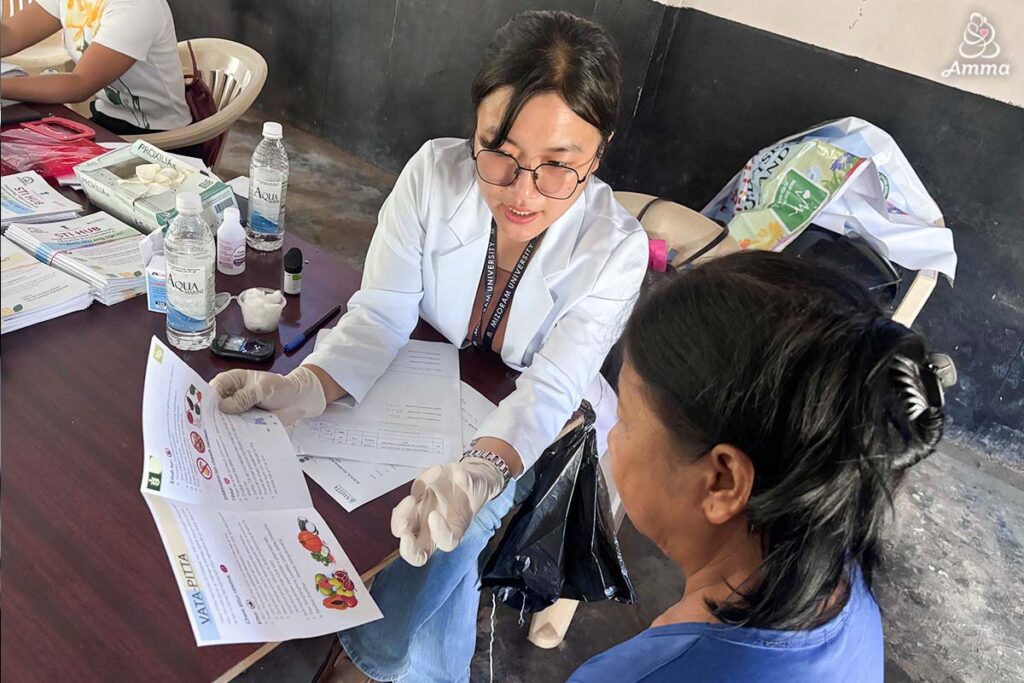The International Conference on Sustainable & Resilient Futures: Bridging Science, Policy, and Practice (ICSRF 2025) took place at Amrita University, Amritapuri Campus with great strength. From August 29 to September 1, it united over 1,000 participants and 80 distinguished speakers from across the globe.
In alignment with its purpose, the gathering was India’s first carbon-neutral academic conference, conducted in alignment with ISO 14068 standards.
ICSRF 2025 fostered dialogue and collaboration among researchers, scientists, policymakers, practitioners, and industry leaders to tackle our world’s sustainability challenges. It was led by Amrita’s UNESCO Chair on Experiential Learning for Sustainable Innovation & Development, School for Sustainable Futures, and SustIN network.
“Amma has always strived to impart education for life and education for living to address global challenges through compassion-driven research. In 2013, Amma’s vision gave rise to the Live-in-Labs program, a transformative ecosystem where students and faculty co-design sustainable solutions with communities, ensuring long-term ownership, sustainability and resilience,” said Dr Maneesha Vindodini Ramesh, Amrita’s Provost, in her inaugural address.
“Since then, our work has touched over 2,200 communities involving multistakeholder collaborations through community meetings, rural internships, student projects, doctoral research, etc. The insights from these initiatives have paved the way for ICSRF as a platform to create knowledge societies, global networks and clusters of excellence.”
Mr Tim Curtis is the Director of UNESCO New Delhi Regional Office for South Asia & UNESCO Representative to Bhutan, India, the Maldives and Sri Lanka. As chief guest, he emphasised that education must go beyond technical knowledge to nurture empathy, resilience, and innovation.
“Education is not only a fundamental right of every human being but also the power to build a better future,” he said.
“Through the Greening Education Partnership, now active in more than 80 countries, UNESCO is promoting Green Schools, Green Curriculum, Green Teachers, and Green Communities,” he added, calling for inclusivity and values-driven education as a cornerstone of sustainability.
Dr. Curtis highlighted that while UNESCO collaborates with many stakeholders worldwide to harness the power of education, partnerships with institutions like Amrita University are exemplary. He noted that this long-standing collaboration has enabled UNESCO to work closely with Amrita for many years.
With representation from 30+ countries, including UNESCO, UN ESCAP, government, academia, industry, and civil society, ICSRF 2025 demonstrated how academic rigour, technological innovation, and compassionate values can converge.
Speaking on behalf of the financial sector, Shri Shaji KV, Chairman of India’s National Bank for Agriculture and Rural Development (NABARD), underscored that sustainability is not optional but existential.
“We must mainstream sustainable practices across agriculture, fisheries, water, housing, and transport. The time to act is now, not tomorrow,” he urged, underlining NABARD’s commitment to climate-resilient development.
He inaugurated Amrita’s Digital Twin Rural Clusters for Climate Adaptation. The platform aims to build Sustainable, Resilient, and Self-Reliant Ecosystems through Social Innovation and ClimateTech across areas such healthcare, energy access, disaster preparedness, agriculture, cultural heritage, and water security.
ICSRF 2025 featured nine tracks covering a wide range of themes such as climate, environmental restoration, and sustainability. This included high-level panels on sustainability in education, finance, startups, and multistakeholder governance; workshops on pathways to net zero, a symposium on lake and reservoir management and geospatial analysis; and tutorials on systems thinking, rural development, and publishing.
The program also featured an NGO Conclave and Hackathons, serving as vibrant platforms for grassroots innovation and collaborative problem-solving.
As well, ICSRF 2025 witnessed the inauguration of SREE (Sustainability & Resilience Geo Platform) and GeoSanskriti, a pioneering digital platform for Intangible Cultural Heritage.
While SREE leverages digital twin and geospatial technologies for sustainable development, GeoSanskriti focuses on the protection of sacred groves and their ecological, cultural, and spiritual significance.
Adding a cultural dimension, participants from different countries presented a cultural evening and artistic performances, which stood out as a unique highlight of the conference.





